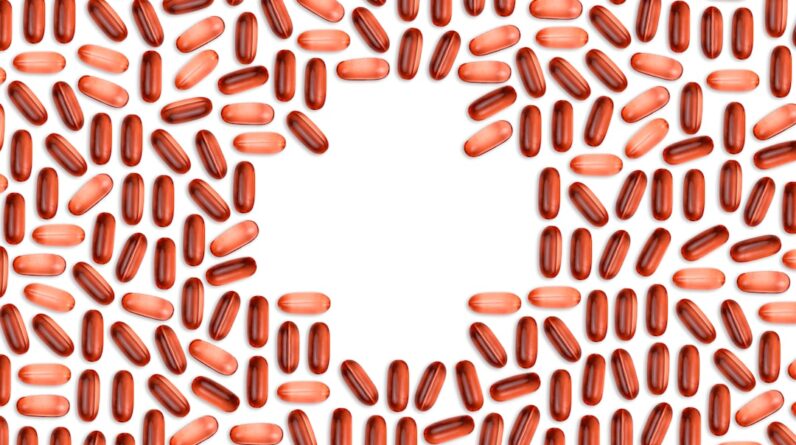Yeast infections are a common yet often misunderstood condition that can affect anyone, though they are particularly prevalent among women. These infections are primarily caused by an overgrowth of the fungus Candida, which is naturally present in the body. When the balance of microorganisms is disrupted—due to factors such as antibiotics, hormonal changes, or a weakened immune system—Candida can proliferate, leading to uncomfortable symptoms.
You may experience itching, burning sensations, and unusual discharge, which can be both physically and emotionally distressing. Recognizing the signs of a yeast infection is crucial for timely intervention. While many people associate yeast infections with vaginal discomfort, they can also occur in other areas of the body, such as the mouth (oral thrush) or skin folds.
Understanding the underlying causes and symptoms can empower you to take proactive steps in managing your health. It’s essential to remember that while yeast infections are common, they can also be recurrent for some individuals, necessitating a deeper exploration into lifestyle factors and potential treatments.
Key Takeaways
- Yeast infections are caused by an overgrowth of the fungus Candida, commonly found in the body.
- Supplements can play a role in managing yeast infections by supporting the body’s natural defenses and promoting a healthy balance of microorganisms.
- When choosing a yeast infection supplement, look for ingredients like probiotics, garlic, and oregano oil, which have been shown to have antifungal properties.
- Incorporating the supplement into your daily routine can involve taking it with meals or as directed by a healthcare professional.
- Potential side effects and precautions of yeast infection supplements may include digestive discomfort and interactions with certain medications, so it’s important to consult with a healthcare professional before starting a new supplement regimen.
The Role of Supplements in Managing Yeast Infections
Supplements can play a significant role in managing yeast infections by supporting your body’s natural defenses and restoring balance to your microbiome. Probiotics, for instance, are often recommended as they introduce beneficial bacteria that can help inhibit the growth of Candida. By enhancing your gut flora, these supplements may not only alleviate current symptoms but also prevent future occurrences.
You might find that incorporating probiotics into your routine helps improve your overall digestive health, which is closely linked to immune function. In addition to probiotics, other supplements such as garlic extract and caprylic acid have gained attention for their antifungal properties. Garlic has been used for centuries for its medicinal benefits, and its active compounds may help combat yeast overgrowth.
Caprylic acid, a fatty acid found in coconut oil, is believed to disrupt the cell membranes of yeast cells, effectively reducing their numbers. By exploring these options, you can take a more holistic approach to managing yeast infections and support your body’s natural healing processes.
Choosing the Right Yeast Infection Supplement

When it comes to selecting the right supplement for managing yeast infections, it’s essential to do your research and consider various factors. Not all supplements are created equal; some may contain additional ingredients that could either enhance their effectiveness or lead to unwanted side effects. Look for products that contain high-quality strains of probiotics specifically formulated for yeast management.
Reading reviews and checking for third-party testing can help ensure you’re choosing a reputable brand. Additionally, consider your individual health needs and any pre-existing conditions you may have. If you have allergies or sensitivities, it’s crucial to read labels carefully to avoid any adverse reactions.
Consulting with a healthcare professional can also provide valuable insights into which supplements may be most beneficial for you. By taking the time to choose the right product, you can increase your chances of successfully managing your yeast infection and improving your overall well-being.
Incorporating the Supplement into Your Daily Routine
| Benefits | Recommended Dosage | Best Time to Take |
|---|---|---|
| Improved Immune System | 1000mg per day | Morning with breakfast |
| Enhanced Cognitive Function | 500mg per day | Afternoon with lunch |
| Reduced Inflammation | 1500mg per day | Evening with dinner |
Integrating a new supplement into your daily routine doesn’t have to be complicated. Start by establishing a consistent schedule that works for you—whether it’s taking your supplement with breakfast or before bed. Consistency is key when it comes to reaping the benefits of any supplement, so find a time that you can stick to daily.
You might also consider setting reminders on your phone or using a pill organizer to help you stay on track. In addition to timing, think about how you can make taking your supplement more enjoyable. If you’re using probiotics in capsule form, consider pairing them with a favorite beverage or food that complements their flavor.
For example, mixing powdered probiotics into smoothies or yogurt can make the experience more pleasant while also enhancing your nutrient intake. By making these small adjustments, you’ll be more likely to incorporate the supplement seamlessly into your lifestyle.
Potential Side Effects and Precautions
While supplements can be beneficial in managing yeast infections, it’s important to be aware of potential side effects and take necessary precautions. Some individuals may experience mild gastrointestinal discomfort when first introducing probiotics or other supplements into their regimen. This could manifest as bloating or gas but often subsides as your body adjusts.
If you notice persistent discomfort or any severe reactions, it’s crucial to discontinue use and consult with a healthcare professional. Moreover, certain supplements may interact with medications you are currently taking or exacerbate existing health conditions. For instance, if you are on antifungal medications or immunosuppressants, it’s vital to discuss any new supplements with your doctor beforehand.
Being proactive about understanding how different substances interact can help you avoid complications and ensure that your approach to managing yeast infections is both safe and effective.
Combining Supplements with Other Treatment Methods

To achieve optimal results in managing yeast infections, consider combining supplements with other treatment methods. Over-the-counter antifungal medications can provide immediate relief from symptoms while supplements work to restore balance in the long term. This dual approach allows you to address both the symptoms and underlying causes of the infection effectively.
Additionally, lifestyle changes can complement your supplement regimen. Maintaining a balanced diet low in sugar and refined carbohydrates can help reduce the likelihood of Candida overgrowth since these foods can fuel yeast growth. Incorporating more whole foods, such as fruits, vegetables, and whole grains, can support your immune system and overall health.
By taking a comprehensive approach that includes supplements, medications, and lifestyle adjustments, you’ll be better equipped to manage yeast infections and promote lasting wellness.
Monitoring and Evaluating the Effectiveness of the Supplement
As you begin incorporating a new supplement into your routine for managing yeast infections, it’s essential to monitor its effectiveness over time. Keep track of any changes in symptoms or overall well-being by maintaining a journal or using an app designed for health tracking. Documenting your experiences will help you identify patterns and determine whether the supplement is making a positive impact on your condition.
In addition to symptom tracking, consider scheduling regular check-ins with your healthcare provider to discuss your progress. They can offer valuable insights based on their expertise and may suggest adjustments to your treatment plan if necessary. By actively monitoring your response to the supplement and seeking professional guidance, you’ll be better positioned to make informed decisions about your health journey.
Consulting with a Healthcare Professional
Before embarking on any new treatment plan for managing yeast infections—especially one involving supplements—it’s wise to consult with a healthcare professional. They can provide personalized recommendations based on your medical history and current health status. A doctor or nutritionist can help you navigate the myriad of options available and guide you toward safe and effective choices tailored to your needs.
Moreover, discussing your symptoms openly with a healthcare provider can lead to a more accurate diagnosis and treatment plan. They may recommend additional tests or evaluations to rule out other underlying conditions that could be contributing to recurrent yeast infections. By fostering an open dialogue with your healthcare team, you’ll empower yourself with knowledge and resources that enhance your ability to manage yeast infections effectively.
In conclusion, understanding yeast infections and their management through supplements requires a multifaceted approach that includes education, careful selection of products, lifestyle adjustments, and professional guidance. By taking proactive steps and remaining vigilant about monitoring your health, you can navigate this common condition with confidence and improve your overall quality of life.
If you are interested in learning more about the scientific evidence supporting the effectiveness of health supplements for yeast infections, check out this article here. Understanding why nutrition is important for overall health can also provide valuable insight into the benefits of health supplements. To delve deeper into this topic, you can read the article here. Additionally, exploring the significance of the 7 essential nutrients can shed light on the role they play in maintaining optimal health. For more information on this subject, visit the article here.
FAQs
What is a yeast infection?
A yeast infection is a common fungal infection that can affect various parts of the body, including the mouth, throat, skin, and genital area. It is caused by an overgrowth of the fungus Candida.
What are the symptoms of a yeast infection?
Symptoms of a yeast infection can vary depending on the affected area, but common symptoms include itching, burning, redness, and swelling. In the case of a vaginal yeast infection, women may also experience abnormal vaginal discharge and discomfort during urination or sexual intercourse.
What are health supplements for yeast infections?
Health supplements for yeast infections are products that contain natural ingredients such as probiotics, garlic, oregano oil, and caprylic acid, which are believed to help restore the balance of good bacteria in the body and inhibit the growth of Candida fungus.
How do health supplements help with yeast infections?
Health supplements for yeast infections are thought to work by promoting the growth of beneficial bacteria in the body, which can help restore the natural balance and prevent the overgrowth of Candida fungus. Some supplements also have antifungal properties that may help to inhibit the growth of yeast.
Are health supplements for yeast infections effective?
While some people may find relief from yeast infection symptoms by using health supplements, it’s important to note that the effectiveness of these products can vary from person to person. It’s always best to consult with a healthcare professional before using any health supplement, especially if you have a medical condition or are taking other medications.
Are there any risks or side effects associated with health supplements for yeast infections?
Some health supplements for yeast infections may cause side effects such as digestive upset, allergic reactions, or interactions with other medications. It’s important to carefully read the product label and consult with a healthcare professional before using any health supplement, especially if you have any underlying health conditions or are pregnant or breastfeeding.






